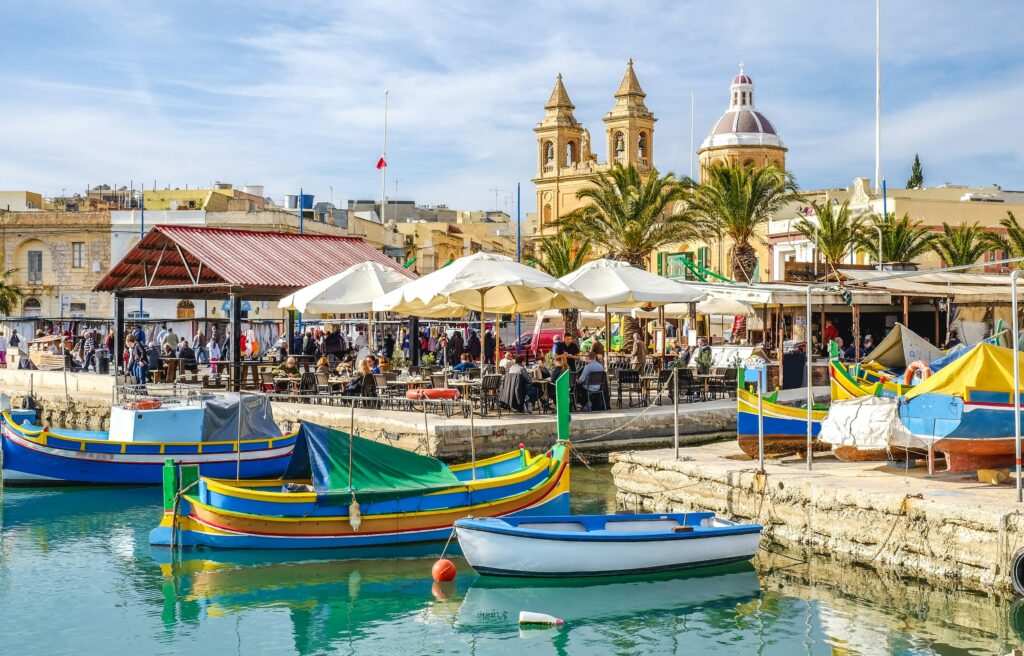Citizenship or residency in Malta: benefits and differences for global investors
Malta offers both residency and citizenship options for investors. For high-net-worth individuals, understanding the key differences between Maltese residency and citizenship is essential to making an informed decision.
As Julia Loko, Investment Programs Expert at Immigrant Invest, explains, citizenship by naturalisation in Malta for exceptional services by direct investment is one of the most attractive options for those seeking unparalleled access to Europe and beyond.

Ways to Obtain Malta Residency and Citizenship for Investors
Maltese Global Residence Programme. This program is tailored for non-EU individuals looking for a flexible and affordable residency solution.
Malta Global Residence Programme requires an annual tax payment of €15,000, and the property investment requirements are slightly lower. This is more flexible for those who plan to travel frequently.
Malta Permanent Residence Programme. This option is suitable for investors seeking long-term residency. The program requires a non-refundable government contribution, property investment, and a donation to a local NGO. It also allows applicants to include family members.
To apply for the Malta MPRP, applicants must meet several key requirements:
- Rent real estate for at least €14,000 per annum or buy a property for at least €375,000.
- Application administrative fee. Investors pay €15,000 as an initial payment and €35,000 at the final stage, regardless of whether they choose to buy or rent property.
- Government contribution. Investors must make a one-time, non-refundable contribution of €30,000 to the government if purchasing property, or €60,000 if renting.
- Donation to a non-governmental organisation. An additional donation of €2,000 is required to a local NGO. This donation contributes to social projects in Malta.
- Proof of funds. Applicants need to demonstrate assets worth at least €500,000, with €150,000 in liquid financial assets. This ensures that applicants have sufficient financial stability to support themselves and their families.
Malta citizenship by naturalisation for exceptional services by direct investment. For those seeking EU citizenship, this program offers a route through investment. The process involves a significant contribution to Malta’s economy, property investment, and a residency period of at least 12 months.
Applicants must pass strict Due Diligence checks, contribute to the National Development and Social Fund, invest in real estate or government bonds, and reside in Malta for at least one year:
- Contribution to the National Development and Social Fund. Applicants must make a non-refundable contribution to Malta’s National Development and Social Fund. The required amount starts at €600,000 for a minimum 36-month residency, or €750,000 for a reduced 12-month residency period.
- Investment in Property. Applicants are required to invest in property, either by purchasing a property valued at a minimum of €700,000 or renting a property with a minimum annual rental cost of €16,000.
- Investment in Government Bonds. Applicants must invest in government bonds or stocks, which must be held for a period of five years.
11 Advantages of Malta Residency
1. European access and business benefits. A Malta residence permit allows visa-free travel within the Schengen Area.
2. High standard of living. Residents can enjoy Malta’s excellent healthcare, English-speaking environment, and stable political climate.
3. Family inclusivity. Residency permits often include family members, such as spouses and dependents, providing a safe and secure environment for the entire family.
4. Access to quality education. Malta’s education system, influenced by the UK model, provides a strong option for investors with children.
5. Affordable cost of living compared to other EU countries. While offering a high standard of living, Malta remains more affordable than countries like Germany or France.
6. Permanent residence status. Once granted, permanent residence in Malta allows indefinite renewal without needing to requalify.
7. Secure and stable environment. Malta is recognised for its low crime rate and investor-friendly policies.
8. Flexible residency requirements. Malta’s residency programs often do not require individuals to live in the country full-time, offering global investors the flexibility to manage business interests in other locations.
9. Access to the local property market. Residency in Malta allows investors to purchase or rent high-quality properties in a stable and growing real estate market.
10. Opportunities for networking. Malta’s international community and business hubs provide a fertile ground for building partnerships and collaborations across industries.
11. Modern infrastructure. Malta boasts a reliable digital infrastructure and well-developed transport systems, supporting both business operations and personal comfort.
Differences in Benefits: Malta Residence Permit vs. Citizenship
Travel rights. Residency allows travel within the Schengen Area, while citizenship provides visa-free or visa-on-arrival access to over 160 countries, including the US and Canada.
European privileges. Maltese citizens can live, work, and study in any European country, while residents are restricted to Malta.
Inheritance and generational benefits. Citizenship can be passed down to future generations, while residency must be renewed or applied for separately.
Global mobility. Citizenship enhances global mobility significantly compared to residency.
How to Obtain Malta Citizenship
Investment requirements. Applicants contribute to Malta’s National Development Fund, purchase or lease property, and donate to a registered NGO.
Residency period. A minimum residency of 12 months is mandatory before citizenship can be granted.
Thorough Due Diligence process. All applicants undergo a strict background check to ensure compliance with Malta’s regulations.
Family inclusion. Citizenship applications can include spouses, children, and dependent parents.
Timeline. The entire process can take 12—36 months, depending on the investment option.
Benefits of Living in Malta for Global Investors
Business-friendly environment. Malta is known for its transparent legal framework and investor-friendly policies. It is a preferred destination for industries like financial services, gaming, and technology.
Mild climate. With over 300 days of sunshine per year, Malta offers an enjoyable Mediterranean lifestyle.
Multilingual society. English and Maltese are official languages, making integration easier for global investors.
Conclusion
Whether opting for residency or citizenship, benefits of Maltese citizenship include visa-free or visa-on-arrival access to over 160 countries, including key destinations like the United States, Canada, and the United Kingdom. Residency provides flexibility, while citizenship opens the door to enhanced global mobility.